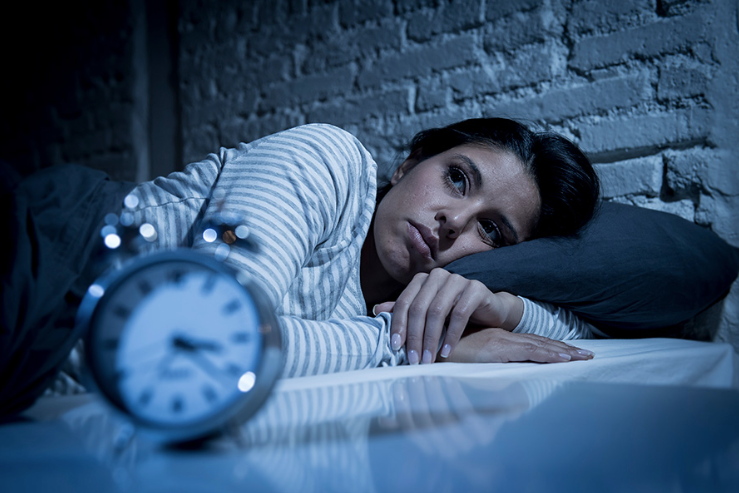1
We all know how important a good night’s sleep is for our health and well-being. But for some of us, getting a full eight hours of shut-eye seems like an impossible feat.
If you’re one of the millions of people struggling with insomnia, you’re probably all too familiar with the detrimental effects that lack sleep can have on your life. From feeling exhausted during the day to being more prone to accidents and illness, insomnia can take a serious toll on your health and quality of life.
So what exactly causes insomnia? Keep reading to find out some of the most common reasons for sleepless nights. Plus, get tips on how to promote better sleep and finally get the rest you deserve!
What Causes It
One of the most widespread and debilitating disruptions to personal well-being, insomnia is a sleeping disorder that affects people of all ages and backgrounds. Causes can range from physical or mental health issues to unhealthy lifestyle habits, such as an irregular sleep schedule or long working hours in front of a computer screen. Insomnia also often has deeper psychological roots due to stress, sadness, or other forms of emotional pain.
Fortunately, there are measures one can take to help manage insomnia that is not always reliant on medication. As we all deserve plenty of restful sleep each night, it is essential that we keep ourselves informed about the causes and treatments available for insomnia.
How To Promote Better Sleep
1. Have A Regular Sleeping Schedule
Developing a consistent sleep schedule is one of the best tips for getting a good night’s rest. By setting an alarm to wake up and go to bed at the same time every day, your body will naturally adjust and you’ll feel more rested and energized in the morning.

Going to bed and waking up around the same time allows you to develop a routine that trains your body to fall asleep—and stay asleep—more easily. As a bonus, this can also help reduce stress levels as it prevents nighttime anxieties about being late for work or school in the morning!
2. Wear Comfortable Sleepwear To Bed
A good night’s sleep plays a crucial role in maintaining a healthy lifestyle, so it makes sense to give yourself the best possible chance of having one. Wearing comfortable pajamas to bed is an easy and effective way to achieve better sleep – and who wouldn’t want that? There are several different types of materials available for loungewear; especially ones with natural fibers such as cotton, fleece, and flannel. Whatever your preference is, finding the most suitable one will help you settle quickly into a peaceful evening every night – now that’s something worth investing in!

When choosing the perfect pair of pajamas, it’s important to think about which type might best suit you and your needs. Fleece pajamas provide warmth and comfort while cotton pajamas are lightweight and breathable. Flannel pajamas also offer cozy warmth but with a bit more structure for those who prefer having something less relaxed during sleep. Plus, with a wide range of patterns and fabrics available online, you’re sure to find the perfect pair that suits both your style and comfort. It may sound tiny but following this simple step can really make a difference when it comes to a better night’s rest.
3. Avoid Or Keep Daytime Nap To 30 Minutes Max
Taking midday naps can offer a range of benefits, including improved alertness and mental clarity. However, keeping them to a maximum of 30 minutes and avoiding them close to bedtime helps your body maintain the natural circadian rhythm—the 24-hour cycle based on light and darkness that tells you when it’s time for sleeping or staying awake. When you take too long of a nap or delay going to bed, your internal clock gets confused and sleep quality may suffer as a result. Therefore, capping naps at 30 minutes max can help ensure that you get the full restorative sleep you need to be fully energized during the day.
4. Avoid Caffeine And Opt For Calming Activities Before Bedtime
If you find yourself lying awake late at night, avoiding caffeine late in the day and opting for calming activities like reading or taking a warm bath before bedtime can be beneficial when it comes to falling asleep. Caffeine is a stimulant that can keep you up for longer, so it’s best to steer clear of coffee, tea, energy drinks, and chocolate after lunchtime.

Instead, take advantage of the hours prior to sleep by engaging in relaxing activities like stretching or yoga that allow your body and mind to transition into restful mode. A warm bath before bedtime is particularly effective as it increases body temperature during the soak and decreases temperature when you get out—which has been found to help promote drowsiness.
Improving sleep should be a priority for all of us, as it is one of the pillars of good health. Quality and quantity are both important. There are several key steps that one can take to make sure one gets enough restful sleep each night. First and foremost, practice good sleep hygiene by establishing regular sleeping and waking times and avoiding stimulating activities close to bedtime. Additionally, reducing any sources of stress or worries before bed can help ensure a better night’s sleep. Finally, another great idea is to invest in quality pajamas that offer comfort and support like fleece, cotton, or flannel options; doing so will help you feel more cozily tucked in at night – allowing you to find a peaceful slumber no matter what is happening on the outside.
Give yourself the gift of a good night’s sleep and head to Tezenis CZ to find the perfect pair of pajamas.

